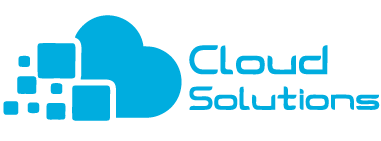Salesforce is a cloud computing company that has made heads turn towards it all across the world. It is behind the latest sensation in the technology market, namely customer relationship management or CRM. It is also one of the highest grossing cloud companies in the world currently. Generally, Salesforce creates an interface between case management and task management in addition to automatically routing as well as escalating important events. The social networking plugin provided by Salesforce lets the user join any conversation about their company on popular social networking websites. Salesforce training has become quite sought after with the emergence of Salesforce as a major player in the CRM market.
Any Salesforce consultants can be categorized into three different groups:
- Administrator
- Developer
- Implementation Expert
With the increasing demand for Salesforce in the market, the demand for knowledge experts has also increased considerably. A Salesforce Administrator is also a business process expert. They work with the business owners and understand the existing issues as well as collect information required. The information gathered by the salesforce administrator is put to good use during the developing phase. Generally, Administrators deal with the clients in a face to face approach, whereas a Developer works behind the scenes. The developer is required to have an in-depth knowledge of different coding languages as well as the ability to quickly learn a new coding language.
Generally, Salesforce developers profit from learning Salesforce Administrator as well. Salesforce is currently creating quite a stir in the technology industry due to its productivity. Salesforce has reached the phase where it is being taken seriously and companies are on the lookout for people with proven knowledge in it. Most Salesforce developers have diverse backgrounds which they can use to their advantage. Salesforce can be used as a general purpose tool to build data-driven applications in the cloud in addition to extending CRM apps.
The prerequisites for any Salesforce developer can be seen below:
- Understand the platform well
Once the developer is confident of his knowledge of the platform, it makes his work easier. It is a good idea to start with the Force.com Workbook; this can help the developer have a hands-on experience. There are various components of the platform that the developer needs to familiarize themselves with.
- Learn to use the tools
This sounds like a simple rule to implement, but most developers are not aware of all the tools available to them on the platform. It has been seen again and again that the best of the developers are those who are familiar with every single part of the feature set provided. Some tools that are popularly used are
- The Developer Edition (DE) environment.
- The Developer Console.
- Learn to code
Even though, theoretically coding is not exactly required for building apps, it has been seen that from a practical side of things that some code will be required to be written as it is a general purpose tool used to build cloud applications. Some of the commonly used coding languages include
- VisualForce
- Apex Code
- SOQL
These coding languages are very easy to pick up if the developer has a basic working knowledge of XML, Java and SQL
- Choose suitable apps for the platform
Any data-driven cloud app that needs security, identity management as well as OAuth authentication is a good candidate for the Salesforce platform.
Keep Updating YourselfCommunity boards are the best place to start to keep abreast f the latest developments in the Salesforce platform. It also gives an in-depth look into the conversations between MVPs and other top Salesforce consultants. It also serves as a place to go for guidance and to learn from others in a more practical setting. There are more than 200 user groups around the world, being a part of one of them helps you to network with like-minded people and create new contacts in the field as well. It also offers a chance to learn more ways that Salesforce can be implemented according to the customers’ requirements.
Salesforce Platform generally uses a classic model view controller model, but it is not necessary to stick to this model. The developer is free to map out the app and decide where the features are to be implemented.




